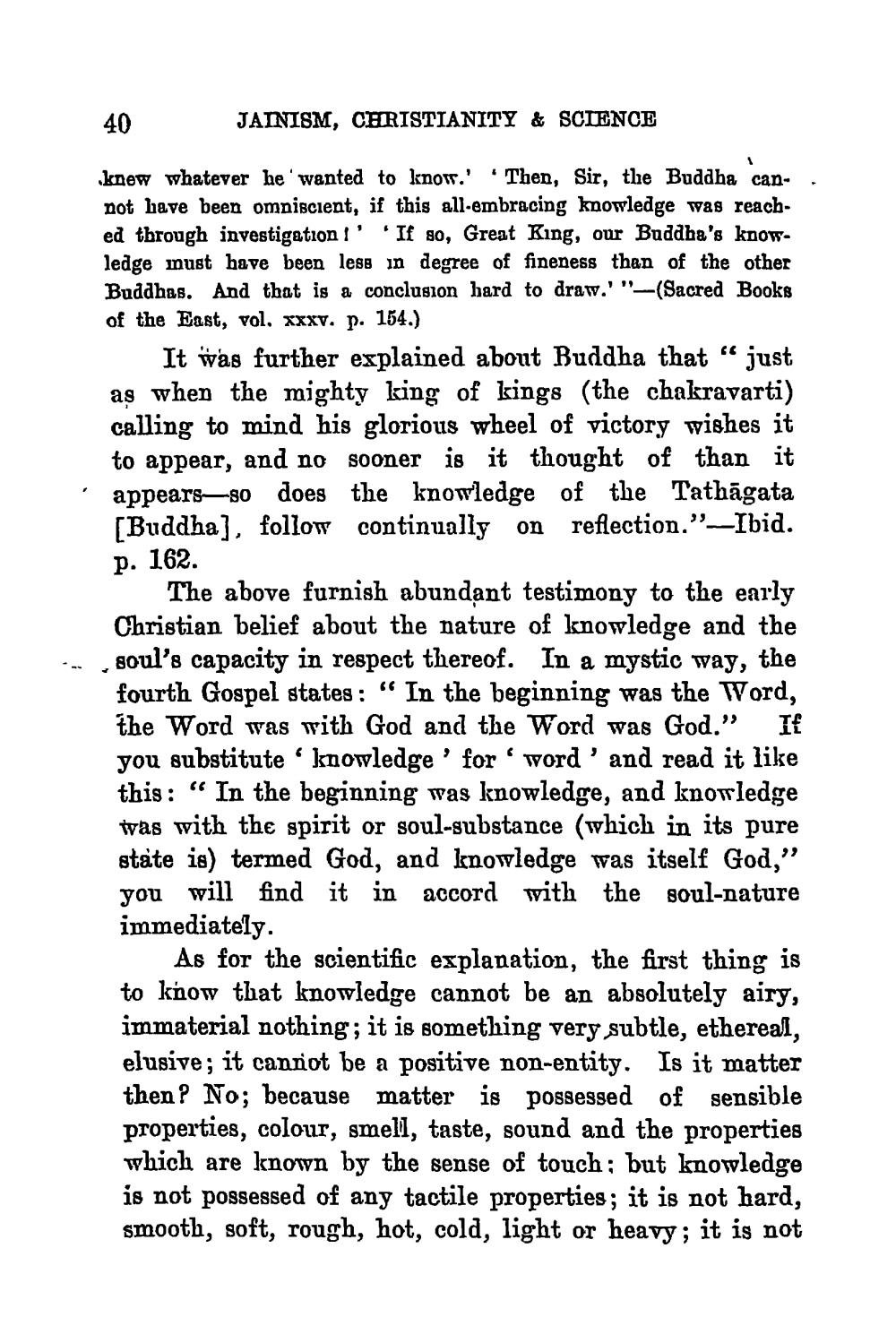________________
JAINISM, CHRISTIANITY & SCIENCE
40
1
knew whatever he wanted to know.' Then, Sir, the Buddha cannot have been omniscient, if this all-embracing knowledge was reached through investigation! 'If so, Great King, our Buddha's knowledge must have been less in degree of fineness than of the other Buddhas. And that is a conclusion hard to draw.'"-(Sacred Books of the East, vol. xxxv. p. 154.)
It was further explained about Buddha that " just as when the mighty king of kings (the chakravarti) calling to mind his glorious wheel of victory wishes it to appear, and no sooner is it thought of than it appears so does the knowledge of the Tathāgata [Buddha], follow continually on reflection."-Ibid. p. 162.
،
The above furnish abundant testimony to the early Christian belief about the nature of knowledge and the soul's capacity in respect thereof. In a mystic way, the fourth Gospel states: "In the beginning was the Word, the Word was with God and the Word was God." If you substitute' knowledge' for word' and read it like this: "In the beginning was knowledge, and knowledge was with the spirit or soul-substance (which in its pure state is) termed God, and knowledge was itself God," you will find it in accord with the soul-nature immediately.
As for the scientific explanation, the first thing is to know that knowledge cannot be an absolutely airy, immaterial nothing; it is something very subtle, ethereal, elusive; it cannot be a positive non-entity. Is it matter then? No; because matter is possessed of sensible properties, colour, smell, taste, sound and the properties which are known by the sense of touch; but knowledge is not possessed of any tactile properties; it is not hard, smooth, soft, rough, hot, cold, light or heavy; it is not




